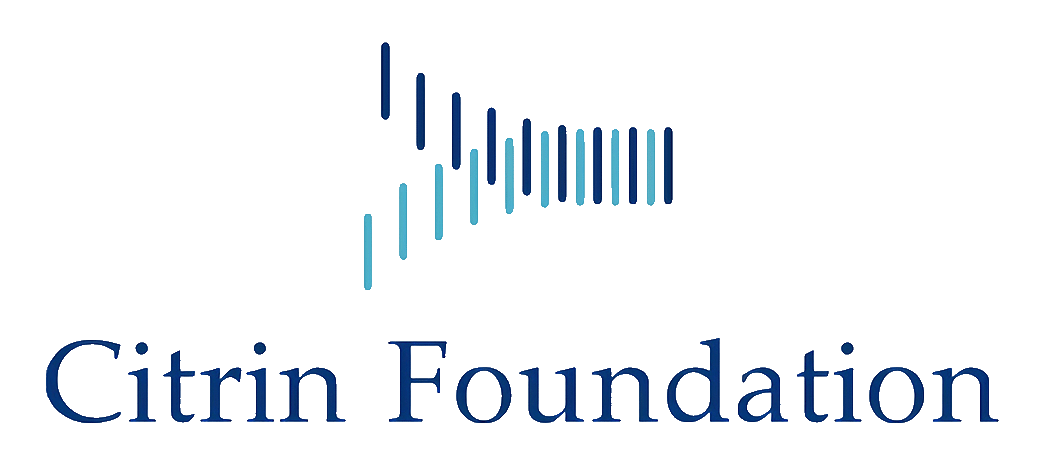Prof. Marc Prentki, Ph.D and Dr. S.R. Murthy Madiraju, Ph.D
Montreal Diabetes Research Center, CRCHUM, Montreal, QC, Canada
Development of a human cellular model and targeting liver glycerol-3-phosphate phosphatase for citrin deficiency
Genetic deficiency of citrin (CD) / mitochondrial aspartate/glutamate carrier-2 is associated with lowered urea cycle activity, hyperammonemia and citrullinemia, fatty liver, hypoglycemia, and failure to thrive. CD is also associated with intolerance to carbohydrates and glycerol. A disturbed redox state in liver in CD leads to elevated cytosolic NADH/NAD+ ratio and glycerol-3-phosphate (Gro3P). A lowered cytosolic NAD+ availability and energy deficit, as well as disturbed Gro3P metabolism, appears to contribute to the disease. We recently discovered Gro3P phosphatase (G3PP) in mammalian cells, which operates a “glycerol shunt”, by hydrolyzing Gro3P to glycerol, which exits the cells, thereby facilitating the re-oxidation of cytosolic NADH and the removal of excess glucose-derived Gro3P and reducing equivalents as glycerol, from the cell. G3PP regulation of Gro3P, a precursor for triglycerides in liver is possibly relevant for CD patients who develop hepatic steatosis. We hypothesize that G3PP activation in liver can be harnessed to alleviate the CD pathology by normalizing the hepatic redox state, ATP production, urea cycle and lipogenesis. We propose to carry out in vitro studies to develop and characterize an in vitro model for CD using HepaRG human hepatic cells and to investigate if increased G3PP expression in citrin-deleted cells normalizes the metabolic defects associated with CD.
Overall the proposed work will establish an in vitro human hepatocyte based model system to study CD and ascertain if G3PP can be considered as a therapeutic target for CD . These studies will also form the basis for examining the effects of potential pharmacological activators of G3PP in the in vitro model described above and also later in mice in vivo.
(Updated January 2024)

 Dr. Marc Prentki obtained his Ph.D from the University of Geneva. He is now a full professor in the Department of Nutrition at the University of Montreal after working as an assistant professor at the University of Pennsylvania and in Geneva. Dr. Prentki is an established investigator in the University of Montreal Hospital Research Center (CRCHUM) and he is the Founding director of the Montreal Diabetes Research Center (MDRC) that he initiated in 2004 with support from the Canada Foundation for Innovation. He is renowned for his work on metabolic diseases, particularly in the areas of diabetes, obesity and pancreatic beta cell biology, and in cancer cell metabolism. Dr. Prentki published ~190 papers (H index 100) describing different aspects of metabolism and signaling in relation to metabolic diseases and cancer. Dr. Prentki co-directed (Nature 2007) the first GWAS study of any complex disease that resulted in the identification of several type 2 diabetes genes. Recent work from his laboratory, that may be harnessed for citrin deficiency, includes the textbook discovery of glycerol-3-phosphatase (G3PP) in mammalian cells, a central player in the regulation of intermediary and energy metabolism. Using mouse and C. elegans models and in vitro cell models, his laboratory showed that G3PP acts as a glucose excess detoxification machine, and plays an important role in insulin and glucose homeostasis, the regulation of liver glucose and lipid metabolism, cancer cell metabolism and it may promote healthy aging.
Dr. Marc Prentki obtained his Ph.D from the University of Geneva. He is now a full professor in the Department of Nutrition at the University of Montreal after working as an assistant professor at the University of Pennsylvania and in Geneva. Dr. Prentki is an established investigator in the University of Montreal Hospital Research Center (CRCHUM) and he is the Founding director of the Montreal Diabetes Research Center (MDRC) that he initiated in 2004 with support from the Canada Foundation for Innovation. He is renowned for his work on metabolic diseases, particularly in the areas of diabetes, obesity and pancreatic beta cell biology, and in cancer cell metabolism. Dr. Prentki published ~190 papers (H index 100) describing different aspects of metabolism and signaling in relation to metabolic diseases and cancer. Dr. Prentki co-directed (Nature 2007) the first GWAS study of any complex disease that resulted in the identification of several type 2 diabetes genes. Recent work from his laboratory, that may be harnessed for citrin deficiency, includes the textbook discovery of glycerol-3-phosphatase (G3PP) in mammalian cells, a central player in the regulation of intermediary and energy metabolism. Using mouse and C. elegans models and in vitro cell models, his laboratory showed that G3PP acts as a glucose excess detoxification machine, and plays an important role in insulin and glucose homeostasis, the regulation of liver glucose and lipid metabolism, cancer cell metabolism and it may promote healthy aging.